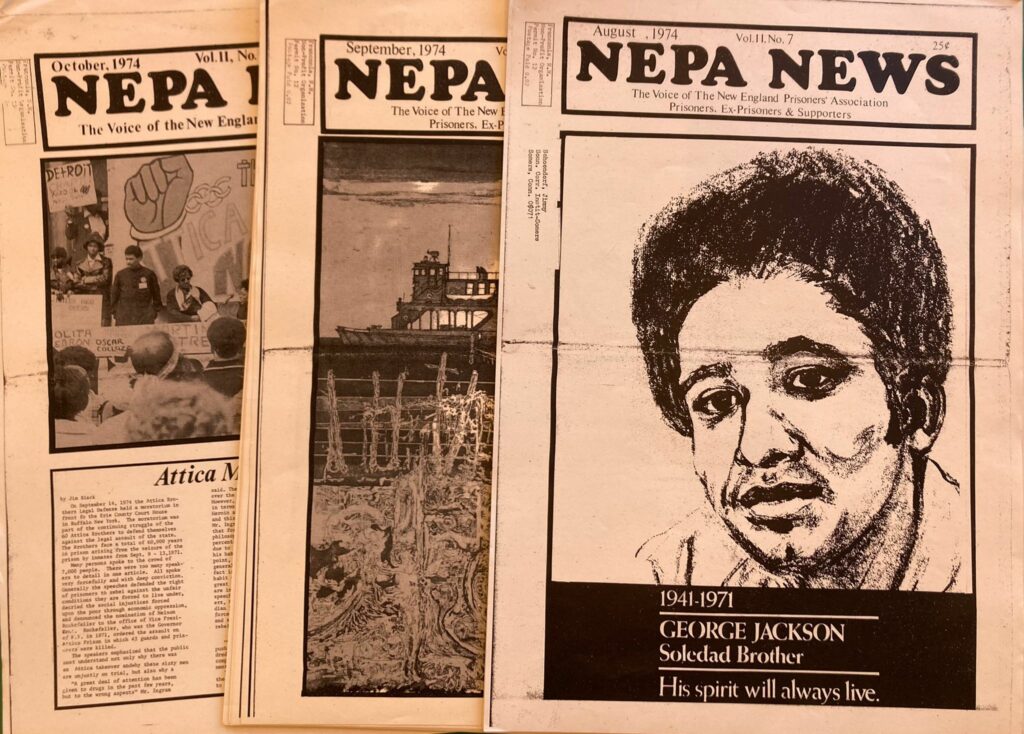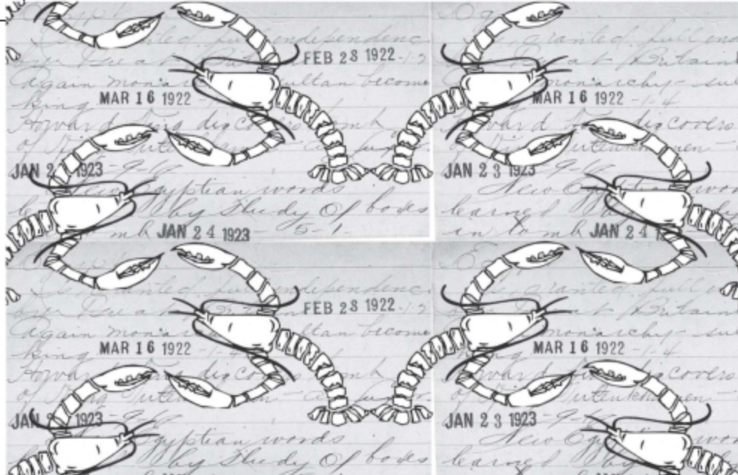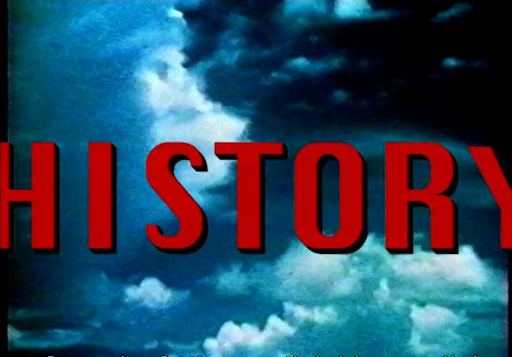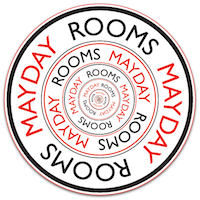Monthly Discussion Group

In our day, the traces of our radical movements are being thrown into rubbish pits, as state-sponsored “austerity” demands the commodification of every inch of space, and with sinister intent destroys the evidence of our past, its joys, its victories. Clear out the closets, empty the shelves, toss out the old footage, shred the underground press, pulverise the brittle, yellowing documents! Thus neoliberalism organises the transition from the old to the new; they must silence alternatives. We do not want the voice of George Jackson to be silenced. His words still eloquently describe a desirable program, a necessary program.
Peter Linebaugh, Archiving at the MayDay Rooms
Since its inception, MayDay Rooms has been built on the principle of archiving from below, challenging the conventional institutional methods of gathering, shaping, and disseminating the history of struggles.
After over a decade of archiving, we are launching a reading and discussion group to address the practices of archiving from below and strategies of activating the histories of resistance.
The group is open to archivists, researchers, historians involved in both past and present organising, and anyone interested in radical archives. Our aim is to share our own approach, learn from each other, and collaboratively develop counter-archival practices that extend beyond mere critique.
The first session will introduce the idea of archiving from below, followed by a discussion about our future sessions. This will provide an opportunity to invite speakers and suggest readings and topics for these sessions.
To give an idea of the topics and areas for discussion, they range from History from Below to Archiving from Below, archiving marginal histories, moving towards an archival ‘commons’ and against institutional enclosure, using archives as preservation, exploring archives of archives, digital gleaning and autonomous online repositories, different methods of archiving struggles, and strategies for connecting radical histories to contemporary struggles, among others.
Previous Archiving From Below Public Sessions:
All Knees and Elbows of Susceptibility and Refusal: Reading History From Below
with Anthony Iles
Wednesday 26th February, 6.30pm

In All Knees and Elbows, published in 2012 Tom Roberts and Anthony Iles attempted to recover and politically and critically survey the work of historians contributing to practices of reading and writing ‘history from below’.
If we articulate the ‘below’ as populated by creatures marked by material processes of differentiation through race, class and gender, then ‘from’ and ‘reading’ designate methods of recovering and centring their lives and experience. To show these are material matters, one way we characterised historical disjecta was as ‘lobster traps’, that is E.P. Thompson’s phrase for the peculiar devices of capture where the historian might find and hear the voices of the unheard articulate themselves.
During this session of Archiving from Below, Anthony will present some arguments and examples from the book – focusing on class, historical evidence and methods – in order to animate a discussion about where we might begin to look and listen for the ‘below’, then, today and tomorrow?
Archiving from Below Discussion Series:
Dial H-I-S-T-O-R-Y
Wednesday 29th January, 6.30 pm

For the first Afb session we will be watching and discussing Johan Grimonprez’s dial H-I-S-T-O-R-Y, alongside archival videos from MayDay Room’s video archive Activist Media Project. We will explore how video, newsreels, television, and endless streams of moving images on social media of direct action can be archived in ways that create sites of production and can serve as a resource for engaging with critical fragments of history.
We also highly recommend going to see Grimonprez’s current film Soundtrack to a Coup d’Etat
Fighting Back with the Claimants Union!
with Georgia Anderson and Cathy Leech
Wednesday 11th December, 6.30pm

Drawing on an oral history project from MayDay Radio, this session will explore the history of the Claimants Union movement, a radical, grassroots initiative led by and for organised benefits claimants active in Britain during the 1970s and 1980s. At its peak, the movement consisted of around 100 autonomous local branches across the country, coordinated through a national federation.
Georgia and Cathy will discuss how they explored the history of the movement through oral histories with former activists and the crucial role that radical and community archives played in preserving its legacy.
Archiving from Below Discussion Series: Archive Stories
with Sara Salem and Mai Taha
Wednesday 27th November, 6.30pm

Archive Stories look at how we can work with creative and non-traditional archives. The project wants to create a space for conversations about archiving beyond institutional archives, and to think through the possibilities that emerge when we imagine the archive as expansive and as encompassing everything around us.
What does it mean to work with creative archives like music, food, or film? How does someone begin working with archives like these? How might we come across unexpected archives when we expand what ‘archive’ means? Approaching archiving as a practice, rather than a finished product opens up space to think about the many ways in which history is remembered and recorded.
Digging Where You Stand: Community-led and Movement Archiving
with Andrew Flinn
Wednesday 30th October at 6.30pm

Drawing on the first English language version of the Swedish author and activist Sven Lindqvist’s influential 1978 workers’ radical history manual (Dig Where You Stand 2023, Repeater Books, ed. by Andrew Flinn & Astrid von Rosen), this discussion will introduce the philosophy and practice embedded in Lindqvist’s workers’ DIY history manual, reflect on its continuing relevance (and also some challenges), and in particular make the connection of ‘Digging’ with independent community-led archiving, and in line with Lindqvist’s urgings connect movements researching and utilising history as suggested by Aziz Choudry and others.
Suggested readings for the session:
Sven Lindqvist’s* Dig Where You Stand* in Oral History 1979, 7(2), 24–30
https://maydayrooms.org/wp-content/uploads/2024/10/Lindqvist-OH-DWYS-1979.pdf
An Introduction to the English Translation of Dig Where You Stand, by Andrew Flinn and Astrid von Rosen
https://www.3ammagazine.com/3am/an-introduction-to-the-english-translation-of-dig-where-you-stand/
